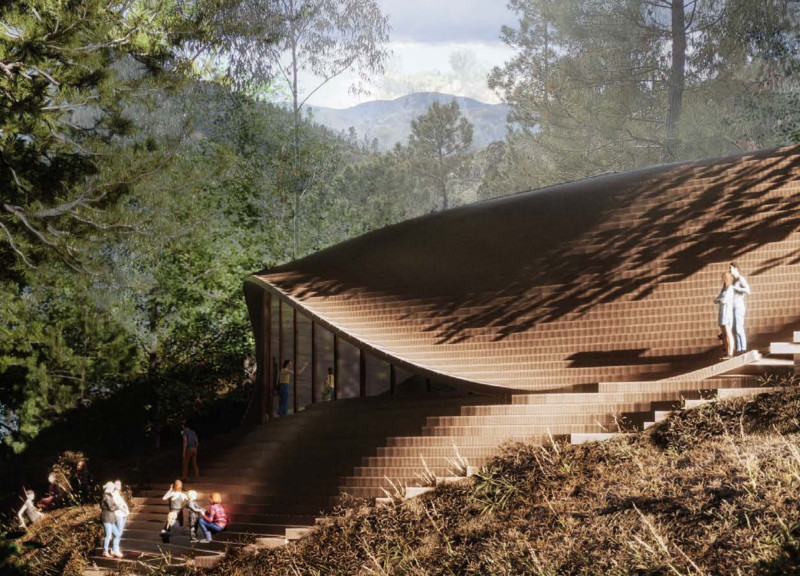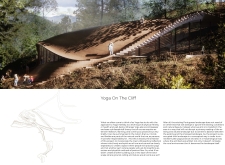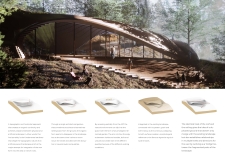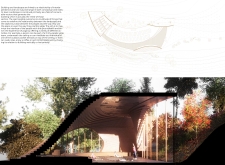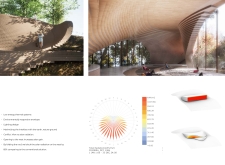5 key facts about this project
The project is set in the scenic landscape of Portugal and serves as a dedicated place for yoga practice. It highlights the connection of mind, body, and spirit, offering a comprehensive view of yoga that goes beyond simple physical activity. The design emphasizes harmony with the natural surroundings, aiming to create an environment where individuals can reflect and connect deeply with nature.
Integration with the Landscape
The goal is to add a layer to the existing landscape while fostering a connection between built and natural elements. By utilizing a topographic and horizontal design, the structure merges with the land rather than competing with it. The design partially sinks into the cliff, allowing nature to flow into the space and creating a peaceful interior garden that enhances the overall ambiance.
Spatial Versatility
The boundaries between indoor and outdoor areas shift, allowing for a range of experiences. Spaces are designed for both group yoga classes and individual meditation, providing opportunities for users to engage with the environment in different ways. Participants can move between communal areas and quiet spots, adjusting their experiences to fit their needs throughout their practice.
Sustainability and Environmental Considerations
Sustainability is a central aspect of the design approach. Features such as low energy thermal systems and a carefully planned exterior highlight a focus on minimizing the ecological impact. The strategies in place also respond to solar exposure, controlling heat while maintaining a welcoming atmosphere inside.
Incorporating elements that reflect traditional agricultural terraces, the design creates a visual connection to the surrounding landscape and its cultural history. The stepping surfaces not only provide structure but also invite users to explore their surroundings as they practice yoga in a calm, restorative space.


